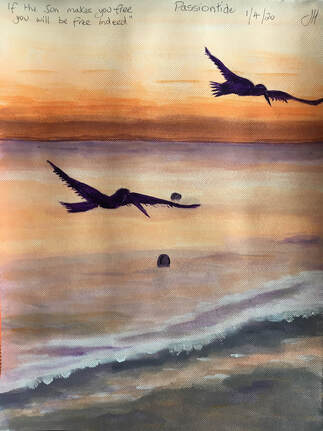 "It is for freedom that Christ has set us free."(Gal 5:1). In Him we have communion with the "truth that makes us free."(Jn 8:32) The Holy Spirit has been given to us and, "where the Spirit of the Lord is, there is freedom." (2 Cor 3:17) Today’s Gospel reading (https://universalis.com/mass.htm) is a good opportunity to recapitulate what the Church understands by freedom: It is a force for our growth and maturity in truth and goodness; it is limited and fallible, and becomes perfect only when it is directed toward God. It is rooted in our reason and in our will: a power to do this or not, and it brings the responsibility for the outcome of our actions. We are certainly free to chose between the good and bad – and so it forms the basis for both praise and reproach. When exercising our freedom, we are greatly aided by our progress in virtue, our knowledge of the good, and restraint. However, if we decide to sin, we abuse our freedom and are led into “the slavery of sin” (Rom 6:17). However, the exercise of freedom does not mean we have the right to say or do just everything. Our finality cannot be found in the satisfaction of our own interests in the enjoyment of earthly goods (Libertatis conscientia 13). On the contrary, our freedom is exercised in relationships with other human beings. We are all created in the image of God, and have the natural right to be recognized as a free and responsible being. Indeed, we are free to do good. But the demands of virtue can be literally endless: there is always something more we feel we can do for others. We are, nevertheless, necessarily limited and cannot fully meet all the demands that have virtually no limit. But we must not despair and allow ourselves to be persecuted into some kind of neurotic perfectionism; let's remember that our freedom to choose good springs from God’s creative act within us, it is the harvest of the Spirit. Samuel Taylor Coleridge (1772-1834) wasn’t just a great English poet, but also a theologian. He speaks of ‘the moralizing of our affections’: making goodness attractive to us so that doing good things becomes the highest sort of pleasure, in spite of all the effort and pain it necessarily involves. It is indeed so that when we do good not because we have in mind a heavenly reward, trying to prepare our defence file for the Last Judgment, and understanding our relationship with God as a religious barter trade, a celestial quid pro quo, but we do so because doing good brings us pure joy - then we truly aim at God. But when our pursuit of earthly pleasures becomes a restless search for temporary satisfactions, we can be sure that we are blindly attempting the impossible, for true freedom can be found only in the One who is Love without end: No single station of the globe Can rest the urgency of love, Whose true vocation must exceed All pastures where its children feed, Transcending in one breathless act The possibilities of fact, We learn no mortal creature is The end of love’s immensities. Thomas Blackburn (1916-1977), Collected Poems By Fr Tomas, illustration by Jan Hearn ©
0 Comments
Leave a Reply. |
Lucy Stothard & Fr David & Fr TomasLucy is an Intern at S Giles, Fr Tomas is is our curate, and Fr David is the vicar. We hope to offer some regular words of encouragement during this difficult time. Archives
May 2020
Categories |

 RSS Feed
RSS Feed
